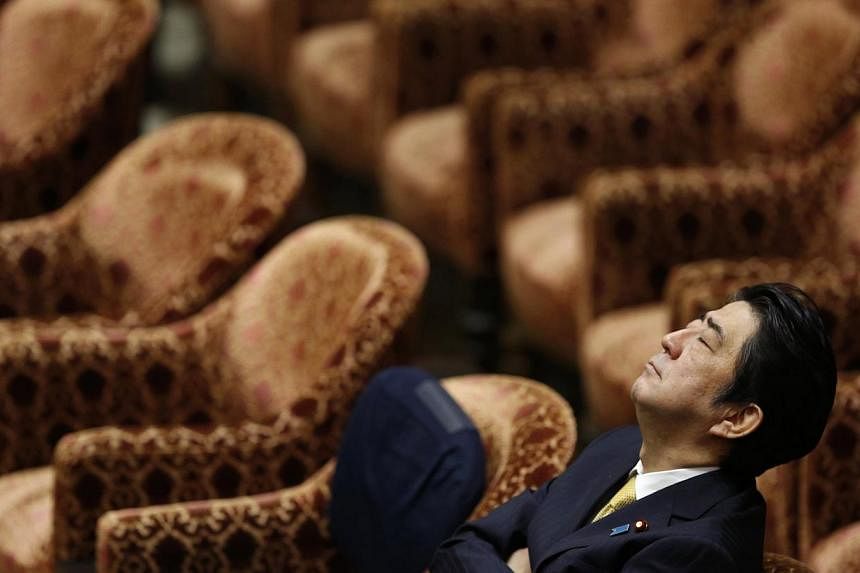Despite what hawks in Japan have declared, the recent beheading of two Japanese hostages by ISIS militants is not about to become Japan's 9/11. The world might prefer the Japanese government to take a stronger stand against terrorism, but Prime Minister Shinzo Abe is playing his cards cautiously. He has been quick to reiterate that his country will neither join the coalition in attacking the Islamic State in Iraq and Syria, nor help finance the effort. That's an utter disappointment. The only saving grace is Mr Abe's promise to press on with humanitarian aid and to expand it.
Most Japanese remain allergic to playing an active military role abroad and some have blamed the killings on what they saw as Mr Abe's unnecessarily provocative attitude towards the ISIS - when he pledged support for Middle Eastern states fighting the extremists, during his recent trip to the region.
The Sept 11, 2001 terrorist attacks in the United States, killing some 3,000 people including 24 Japanese, did much to goad Japan into joining the subsequent worldwide crackdown on terror. But Japan's participation translated chiefly into sending its Self-Defence Forces (SDF) on peacekeeping operations overseas and having SDF planes help refuel US fighter jets over the Indian Ocean during the war on terror in Afghanistan. Last year, when the US-led coalition conducted air raids on ISIS targets, Japan limited its support to cheering from the sidelines and, once again, left the actual fighting to others.
Citing its peace Constitution to let its allies carry the bigger security burden is wearing thin. It is well within the powers of the Japanese themselves to amend their self-imposed constitutional restraints enacted over six decades ago. The "no more war" spirit of the Constitution worked well for it after World War II, when the country was rebuilding its economy and when suspicions of its intentions among former wartime victims in Asia were strong.
For Japan to step up and play its rightful role in the world will call for it to work hard to put its past behind it once and for all. Its past aggression still rankles, especially when Mr Abe and some of his allies seem unwilling to stop denying Japan's wartime history. Unless they take clear steps to do so, Japan will long be hobbled by its past from playing a meaningful role that serves its present and future interests. Given Japan's economic heft, it should rightly play a bigger part in supporting the global anti-terrorism effort. There are protocols to observe to ease restrictions - like gaining the approval of two-thirds of Parliament and majority support in a public referendum. These will require Mr Abe to expend his political capital to mobilise his countrymen to join the rest of the world in tackling terror stoutly.

